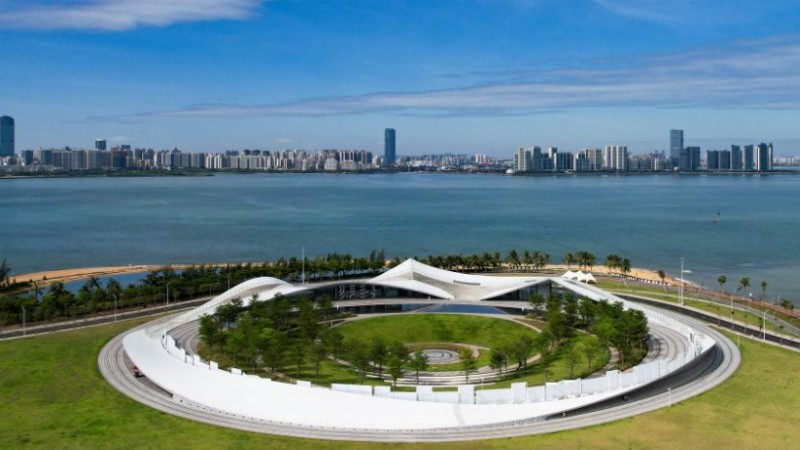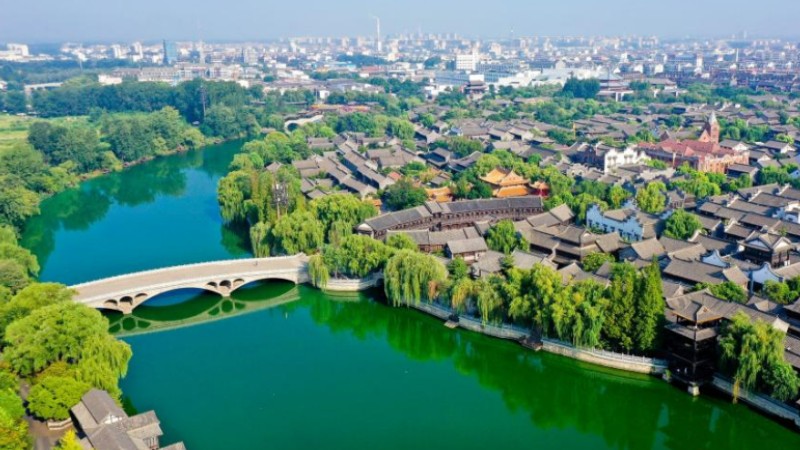Feature: Ahn Jung-geun, fighter against Japanese aggression commemorated by China, South Korea
HARBIN/SEOUL, Aug. 15 (Xinhua) -- At the Harbin Railway Station, a sign reading "Where Ahn Jung-geun shot Hirobumi Ito" draws attention from visitors.
Born in 1879, Ahn is a famous fighter for the independence of the Korean Peninsula, a patriot against Japanese imperialism, and an advocate of peace in East Asia.
He shot dead Hirobumi Ito, the first resident-general of Japan-ruled Korea, also a crime culprit of Japan's aggression on the peninsula, at Harbin Railway Station on Oct. 26, 1909.
The Ahn Jung-geun Memorial Museum in Harbin, capital of northeast China's Heilongjiang Province, consists of exhibition rooms designed to simulate railway platforms. They tell the life story of the hero, who devoted himself to the education of the Korean people and later joined armed resistance against Japan in northeast China and Russia.
The museum opened to the public on Jan. 19, 2014, and offers free admission, attracting some 100,000 visitors every year.
"I've always wanted to come to the Harbin Railway Station and Ahn's memorial museum. Thanks to his great role in the modern history of the Korean Peninsula, South Korea gained independence," Kim Hee-soo, a visitor from South Korea, wrote in the guest book.
Quite a few South Korean visitors expressed their gratitude to China for building such a memorial site, which gives them an insight into the patriot, Li Chunshi, deputy curator of the museum, told Xinhua.
Another memorial museum for Ahn Jung-geun can be found in the South Korean capital Seoul. It opened in 1970 and was renovated in 2010.
South Koreans see him as a leader of their movement against Japanese aggression, so statues and monuments of Ahn are built across the country, Yoo Young-nyol, president of the memorial museum, told Xinhua.
The museum features 12 interconnected glass-wall buildings, symbolizing an alliance established by 12 patriots, including Ahn. In 1909, the 12 of them cut off their left ring fingers and wrote "Korea's Independence" in their own blood, vowing to gain national independence.
"In the fight against Japanese aggression, we have always believed that South Korea and China have formed deep and inseparable ties. Ahn's righteous deeds in Harbin provided an important opportunity for the two countries to unite against Japan, which was of great symbolic significance," Yoo said.
He said South Koreans are grateful for the memorial museum built in China. "We all regard it as a symbol of bilateral friendship."
On the occasion of the 78th anniversary of National Liberation Day of Korea, the memorial museum also held lectures, among other events.
"History should not be forgotten," Yoo said. "We need to know the history and keep it in mind."
"In the long run, South Korea, China, and Japan should join hands for peaceful coexistence and common prosperity of East Asia, which is exactly the long-cherished wish of Ahn," he stressed.
Photos
Related Stories
- Seminar commemorating victory against Japanese aggression held in Beijing
- 68 book series published to reveal archives of war against Japanese aggression
- Ceremony held to mark China's resistance war against Japanese aggression
- Archives reveal Japan's establishment of illicit police units in China before 1931
- 14-year War of Resistance Against Japanese Aggression a consensus among Chinese historians
Copyright © 2023 People's Daily Online. All Rights Reserved.









